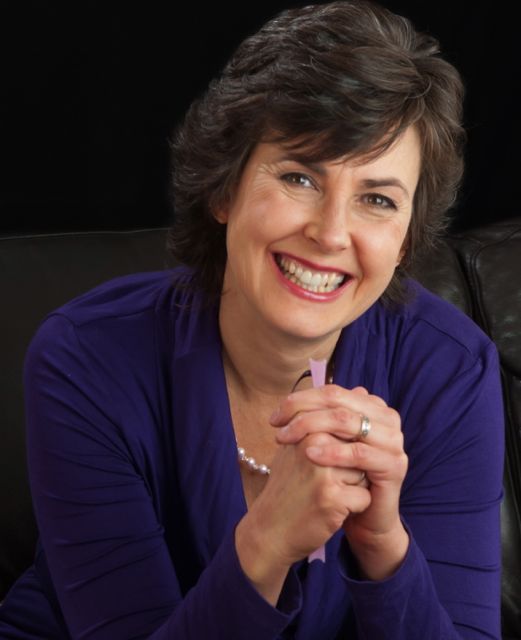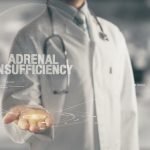Thirty Years with MS: Nothing But Hope
Teri Jaklin, ND
The best advice I ever got from a neurologist was “run along and have a good life.” I was very compliant and did just that. It wasn’t until 10 years later, in 1995, that a nasty relapse reminded me of my diagnosis: multiple sclerosis (MS). Now, 3 university degrees, 2 corporate career changes, 2 private businesses, a midlife re-education, a 20-year marriage, and 30 years since that diagnosis, I can honestly say this is the most exciting time there has ever been to be diagnosed with MS.
Facing a Diagnosis with Fearlessness
In hindsight, my neurologist’s advice allowed me to face my diagnosis with a fearlessness that I have carried with me on this journey. Over the years, I have watched the face of MS change. As pharmaceutical companies provided more creative ideas, I watched typical MS patients become increasingly reliant on their neurologists as their primary point of contact in healthcare management.
On the other hand, my last neurologist visit was 27 years ago, I never did take any pharmaceuticals, and since 1994, my primary care has been firmly in the hands of a naturopathic physician. I gained a greater understanding of what was involved in MS for me, and the things that aggravated and ameliorated my personal condition at any given time. Confidence replaced anxiety, and soon after my diagnosis, I began to get phone calls from people wanting to know my “secrets.” Finally, in 1998, I decided to make an honest woman of myself and enrolled in naturopathic medical school. And the rest, as they say, is history. By observing the fundamentals of naturopathic philosophy and understanding, and by believing the profound healing capacity of the body, I have indeed followed my neurologist’s advice.
Important Lessons Learned
The current and very exciting shift in the science of neurology and our understanding of the concepts of neurogenesis, neuroplasticity, the mind-body connection, and psychoneuroimmunoly, as well as broader and deeper understanding of the interplay between autoimmunity and inflammation, have opened so many doors.
As I step back and observe – through the lens of a patient who has transitioned to doctor – 3 key points continuously bring me back to my own self-care and are instrumental in what I teach and how I work with other people who have been diagnosed with MS:
- Compassionate understanding of living in the real world, and the humbleness and empathy it affords me as a patient/doctor. As doctors, we talk about patients in terms of compliance or not. The modern world provides precious little opportunity to be perfectly compliant all of the time. My role as a doctor reaches far beyond the therapeutic plan. Where do I need to be with each patient? For some, I’m a coach. For others, a sounding board. Almost always, a teacher of the mind-body connection. Sometimes I help set up a functional kitchen or a simple exercise program. Every day the need is different – but there’s always a need to be compassionate, empathetic, understanding, and positive… and to remember to extend the same courtesies to myself… as a patient.
- Never losing sight of the whole. The moment I begin to treat MS (rather than the person), I know I have strayed. The diagnosis is but 1 one piece of information. What systems or situations are involved, and what’s going on upstream for this particular patient – or for me? I am constantly reassessing and redirecting, to remain present and maintain a greater perspective of right now.
- Taking my role as docere seriously and connecting with the emerging science and the shift away from today’s neurology, with a view to tomorrow’s neurology, which are clearly on 2 separate tracks. I am wild about learning and teaching the new powerful – and solidly evidence-based – concepts of neuroplasticity, psychoneuroimmunology, neurogenesis, neurovascular, and mind-body medicine. This has probably changed my life the most.
We live in a very amazing time in the history of medicine. A day doesn’t go by that I don’t learn something new that I can apply to my own health care and that of others. And yet, as my education and experience evolve, so also does my groundedness and belief in the life I have chosen to live and the medicine I have chosen to practice – ultimately in the healing power of nature.
 Teri Jaklin, ND, received her Doctor of Naturopathic Medicine from CCNM. Interim studies were conducted at the Universität Mannheim, Ryerson University, University of Guelph, and the Institute for Mind-Body Medicine at Harvard University. She is certified by the Institute for Functional Medicine. In 2002, Teri founded the Waterdown Clinic of Naturopathic Medicine in Ontario. She is a skilled general practitioner with a passionate commitment to the foundations of naturopathic medicine, treating people of all ages and health status. Areas of special interest include MS and complex chronic illness. With a diagnosis of her own, Teri has been active in the MS community since the mid-80s. Today she coaches individuals and groups on living well with MS. Her efforts have been recognized by her peers with the New Practitioner of the Year Award (2002) and an OAND Leadership Award (2012).
Teri Jaklin, ND, received her Doctor of Naturopathic Medicine from CCNM. Interim studies were conducted at the Universität Mannheim, Ryerson University, University of Guelph, and the Institute for Mind-Body Medicine at Harvard University. She is certified by the Institute for Functional Medicine. In 2002, Teri founded the Waterdown Clinic of Naturopathic Medicine in Ontario. She is a skilled general practitioner with a passionate commitment to the foundations of naturopathic medicine, treating people of all ages and health status. Areas of special interest include MS and complex chronic illness. With a diagnosis of her own, Teri has been active in the MS community since the mid-80s. Today she coaches individuals and groups on living well with MS. Her efforts have been recognized by her peers with the New Practitioner of the Year Award (2002) and an OAND Leadership Award (2012).










